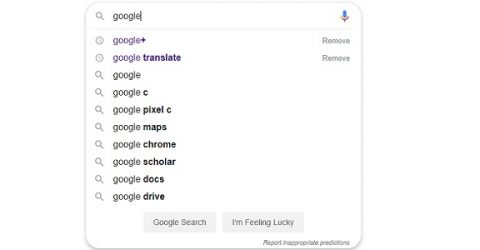Search engine alternatives to Google
Are there other options or is Google a search monopoly?

It’s always a measure of success when a brand name becomes a verb. We hoover, we Velcro, we take an aspirin, and so forth.
Google is a relatively recent entry onto this list of proprietary eponyms. And as such, it’s easy to forget Google isn’t the only search engine in town.
Indeed, in many countries, it’s barely made a ripple.
So, should you consider alternatives to Google? And how can you find a dependable alternative without Googling it?
The little engine that could
It’s been calculated that 87.5 per cent of searches in the UK take place through Google.
This market dominance has been achieved by the simple expedient of delivering more accurate results than other search engines, and doing so faster.
It’s also hard to overstate the importance of Google’s decision not to favour companies who paid it – delivering a reasonably egalitarian search experience for everyone.
Incredibly, Yahoo! still charged companies to appear in its listings as recently as 2002. Perhaps not coincidentally, ‘Google’ was voted the most useful word of that year.
Meanwhile, Ask Jeeves (since rebranded as Ask) was notorious for returning incorrect answers to the sort of questions we’d now ask a virtual assistant.
Searching for a different way
Google quietly established itself as the default platform thanks to a winning blend of superior machine learning algorithms and ultra-fast servers which delivered answers almost instantly.
However, it would be wrong to assume it’s the only search engine in town.
And while successful brands like Baidu make little sense unless you’re searching for Chinese web results, these are three of the best alternatives to Google…
Bing
Despite only holding around eight per cent of the UK search market, Microsoft’s Bing is a quality search engine with a number of key differences from Google.
Market analysis suggests it scores more highly for exact-match keywords, so you might find it easier to find results to very specific search terms.
As the default engine in Edge – itself the default browser for Windows 10 users – Bing deserves to be at the top of any list of alternatives to Google.
Startpage
Forgive the rather 1990s name – this privacy-oriented Dutch search engine actually has a great deal to commend it.
It’s the default engine in the Tor browser, which can be used to explore the Dark Web anonymously.
As such, Startpage doesn’t track its users, store information about them or – critically – resell this data to advertising agencies for targeted ads which subsequently appear in web browsers.
Yahoo!
Having been the most popular web browser two decades ago, Yahoo! is experiencing something of an identity crisis.
With confusion around a partial rebranding to Oath, Yahoo! retains around one per cent of the UK’s search engine market share.
Nevertheless, results are delivered rapidly, and in a more simplified style than the increasingly ad-cluttered listings generated by Google.






